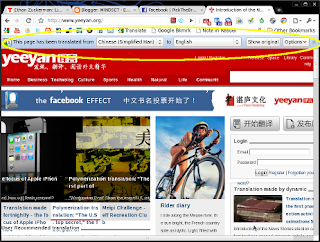Change is Constant
 We need to adopt a change in attitude if we are to cope with adversity. Make no mistake about it, change is challenging whether it is conscious or unexpected. Viewing adversity as change, not loss or failure, is part of empowered and positive thinking. Humans develop resiliency through change, both physiologically, and emotionally It is necessary for all life forms to evolve. Change comes through many vehicles — some hit us hard, others are rather sneaky But despite the challenges change brings, we know it is our natural state. It is in- evitable — the world grows and we grow with it fuelled by our emotions.
We need to adopt a change in attitude if we are to cope with adversity. Make no mistake about it, change is challenging whether it is conscious or unexpected. Viewing adversity as change, not loss or failure, is part of empowered and positive thinking. Humans develop resiliency through change, both physiologically, and emotionally It is necessary for all life forms to evolve. Change comes through many vehicles — some hit us hard, others are rather sneaky But despite the challenges change brings, we know it is our natural state. It is in- evitable — the world grows and we grow with it fuelled by our emotions.We are already designed to cry, express sorrow, frustration, anger, resentment, even give up for a while and most of us choose to explore these feelings. But we are also designed to havehope, recover, be stronger, and inspire others as a result of change. You are never, never alone because emotion gives us plenty in common.
What makes one person triumphantly survive loss and turn it into positive energy, while another in similar circumstances resign? It has to do with our underlying assumptions on change. I havetwo very dear friends; each have had a double mastectomy from breast cancer. Losing body parts is devastating, not to mention living with the daily uncertainty of not knowing whether you continueto remain in remission. Yet one woman has forged ahead as a life-force warrior, focusing on triumphs and wins of today She doesn't look back. The other has difficulty moving forward — not engagingin work outside her home, quitting her job, waiting for something to happen while in a state of self-imposed limbo.They have processed their information in completely different ways. Why?
It is because people want certainty before they decide to accept change. It is a natural reaction. Certainly our culture has become more comfortable with making choices that have predictable outcomes. A current cultural disease we suffer from is predictability, reflected in our inability to accept change at a deeply personal level. It applies across the board to choices we make with our finances, careers, or our relationships.
Science, especially when applied to health issues, has given us a false security blanket when it comes to certainty After all, it seems we've been able to control nature. We like to think we've corneredthe market on predictability and good planning, when the truth is we live in a time where prediction is more intuition and common sense than science. To embrace change, we need to release the umbilical cord we think we have to outcomes of certainty In other words, stepping off of the plateau requires a huge amount of trust. Your fall will be broken somewhere at the right time. Believing that is what allows us to cope. It is the first step, unsupported by any scientific doctrine. And it is a big one.
No matter what science pronounces, whether it is in the form of a diagnosis, prognosis, or the state of the environment, there is no sure thing. There is always the possibility something may exist, or not exist. You will successfully navigate through change and elevate the quality of your life by knowing anyone can beat the odds. Almost everyone you know has a story of beating the odds. Letus pay attention to the real evidence instead of looking for ways to prove that we cannot make it.
Adopting a new attitude on adversity requires big picture thinking on the subject of change. View life, and spiritual development as an upward spiral where you experience some of the samelessons over and over again. We have deliberately put those circumstances in our chart in frequent doses to allow ourselves an opportunity to see how we have been progressing on the upward part of that growth spiral. Change is designed to get outside of ourselves and become conscious of our place within a community of souls. Without change, there is no transformation.
Charlene M Proctor
Times of India Dec 3rd, 2006

Errr, like whats up doc?
ReplyDelete